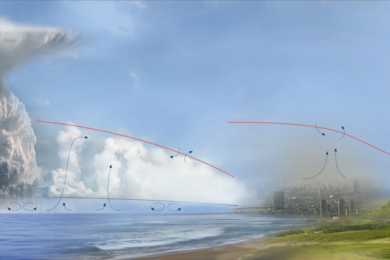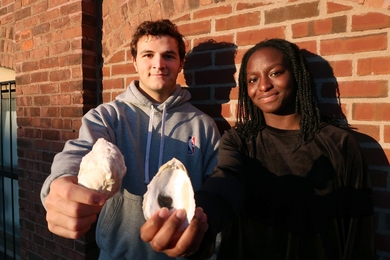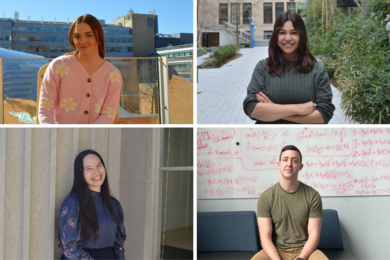CAMBRIDGE, Mass. -- MIT Professor of Political Science Myron Weiner, an internationally known authority on refugees and political change in developing countries, died of brain cancer on June 3 at his home in Waterbury, VT. He was 68.
Professor Weiner, the author or editor of 32 books, wrote extensively on internal and international migration, political demography, ethnic conflict, child labor and education, democratization, and the politics of developing countries. He was an expert on India's politics, ethnic conflicts, education, and agrarian and industrial policies.
Dr. Weiner had been chair of the External Research and Advisory Committee of the United Nations High Commissioner for Refugees since 1996.
At the time of his death, he was engaged in three projects: (1) examining policies toward immigration, refugees, illegal migration and citizenship in Japan, Germany, the United States and South Africa; (2) analyzing conditions which generate migration and refugee flows and the policy instruments available to receiving countries and international institutions to ameliorate these conditions; and (3) researching child labor and educational policy in India and other developing countries.
"Myron Weiner was a brilliant scholar, and an inspiring teacher and colleague, who had a large impact on the world, in particular on the lives of children," said Professor Joshua Cohen, head of the Department of Political Science at the Massachusetts Institute of Technology.
Dr. Weiner's 1991 book The Child and the State in India: Child Labor and Education Policy in Comparative Perspective (Princeton University Press) is in its fourth edition in India and has contributed to the debate in that country over how child labor can be ended. Under the auspices of UNICEF, he has lectured in India on education and child labor and has consulted with government officials there.
His most recent books were The Global Migration Crisis: Challenge to States and to Human Rights (HarperCollins, 1995); Threatened Peoples, Threatened Borders: World Migration and US Policy (co-editor, W. Norton, 1995); The New Geopolitics of Central Asia and its Borderlands (co-editor, Indiana University Press, 1994); The State and Social Transformation in Afghanistan, Iran and Pakistan (co-editor, Syracuse University Press, 1994); and International Migration and Security (editor, Westview Press, 1993).
Born March 11, 1931 in New York City, Dr. Weiner received the BSS from the City College of New York in 1951 and the MA and PhD from Princeton in 1953 and 1955, respectively.
He taught at Princeton and the University of Chicago before coming to MIT as an associate professor in 1961. He was promoted to the rank of full professor in 1965 and served as head of the Department of Political Science from 1974-77. He was also director of MIT's Center for International Studies from 1987-92 and acting director in 1995-96. He was named the Ford International Professor of Political Science in 1977.
During his distinguished career, Professor Weiner served as a consultant to the US State Department, the National Security Council, the World Bank, and the Agency for International Development. He was a member of the Council on Foreign Relations, a fellow of the American Academy of Arts and Sciences, and a past president of the New England Association of Asian Studies. At various times, he held visiting appointments at Harvard, Oxford University's Balliol College, Hebrew University, Delhi University and the University of Paris. Last month, he was elected to the American Philosophical Society, the oldest learned society in the country devoted to the advancement of scholarly and scientific inquiry.
Dr. Weiner is survived by his wife, Sheila Leiman Weiner; a son, Saul of Chicago; a daughter, Beth Datskodsky of Bala Cynwyd, PA; and five grandchildren. He was buried on June 4. In lieu of flowers, memorial donations may be made to UNICEF or to the Central Vermont Home Hospice, RR3, Box 6694, Barre, VT 05641.






